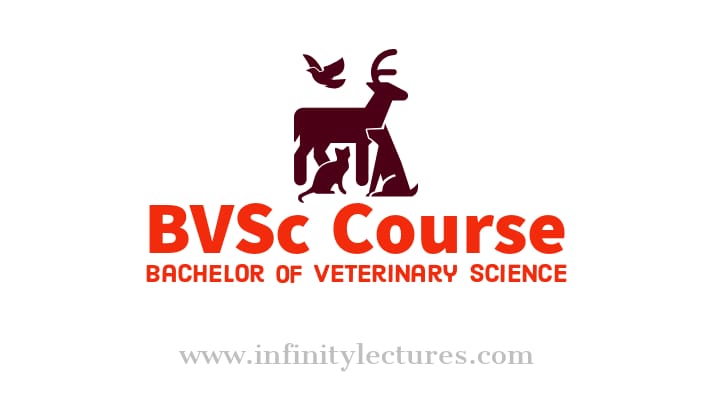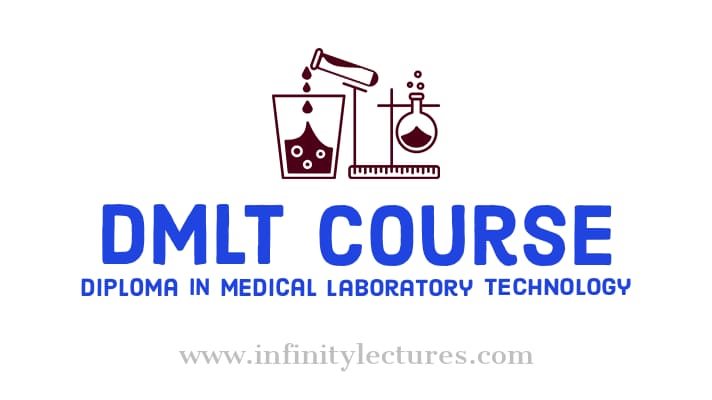Bachelor of Veterinary Science or BVSc Course is a 5-year undergraduate program for those who want to build their career as a Veterinary Doctor, i.e. treatment of animals and their nourishment. In this course, candidates will learn about animal anatomy, animal behaviour, animal husbandry, diseases, breeding and other treatments related to animals.
There’s also a variety of veterinary doctors which treat different types of animals like those who treat pet animals are different from those who treat farm animals like horse, cow, goat, sheep etc.
Also, there’s a category of doctors who treat only wild animals like Lion, Tiger, Giraffe etc. residing either in the zoo or national parks. Although you will learn about all kind of animals and their treatment during your course.
COURSE DETAILS
| Course name | Bachelor of Veterinary Science |
| Short name | BVSc Course |
| Course Level | Undergraduate |
| Degree | Bachelor’s Degree |
| Course Type | Veterinary Science/ Animal Health |
| Course Duration | 5.5 years ( academics + Internship) |
| Mode | Regular |
| Average Fees | ₹ 80,000 – 1 lakh per year |
ELIGIBILITY for BVSc Course
- Minimum Qualification Required is 10+2, with minimum 50% aggregate marks in Physics, Chemistry and Biology.
- It is mandatory that a candidate must have studied science stream with PCB or PCMB with English as a Compulsory Subject.
- The minimum age of eligibility is 18 years and maximum age limit is 25 years for this course.
Specializations in BVSc Course
- BVSc in Animal Production & Management
- BVSc in Veterinary Medicine
- BVSc in Veterinary Surgery & Radiology
- BVSc in Animal Genetics & Breeding
- BVSc in Animal Nutrition
- BVSc in Veterinary Pathology
- BVSc with Animal Husbandry
ADMISSION PROCESS FOR BVSc Course
Admission for BVSc course in any colleges is provided through various National level and State level entrance exams. Few colleges and universities conduct their own entrance exams and seats are allotted on the basis of marks obtained in the respective exam. Class 12th marks are also considered by few colleges.
Entrance Exams for BVSc Course
1) College of Veterinary Science & Animal Husbandry Entrance Examination
2) All India Pre Veterinary Test
3) JNU combined Biotechnology Entrance Examination
4) All India Common Entrance Examination
5) Indian Veterinary Research Institute Entrance Examination
6) Indian Council of Agricultural Research Entrance Examination
Top 5 Colleges for BVSc in India
- Vivekananda Institute of Technology and Science (VITS), Gaziabad
- College of Veterinary and Animal Sciences, Latur
- College of Veterinary Sciences and Animal Husbandry, Aizwal
- Rajiv Gandhi College of Veterinary and Animal Sciences (RGCVAS), Puducherry
- Mahatma Gandhi Veterinary College (MGVC), Bharatpur
Syllabus for BVSc Course
First Year (Semester I and II)
- Introduction to Animal Husbandry
- Veterinary Anatomy in General and Osteology
- Scope and Importance of Biochemistry
- Osteology
- Introduction and Importance of Statistics
- Livestock in India
- Importance of Grasslands and Fodders In-Livestock Production
- Sense Organs and Receptors, Physiology of Special Senses
- Demonstration of Embalming of the Carcass and Preservation
- Myology
- Muscle Physiology
- Enzymes: Definition and Classification
Second Year ( Semester III and IV)
- Factors Affecting the Digestibility of a Feed
- Introduction and History of Microbiology
- Introduction and Scope of Veterinary Pathology
- Parasites and Parasitism
- General Histology
- Indian Poultry Industry
- Spermatogenic Cycle and Wave
- The Biting Midges
- Concepts in Veterinary and Medical Immunology
- Biochemical and Genetic Determinants of Growth
- Introduction and General Description to Protozoa and their Development
- Gross Morphological and Topographical Study of Various Organs of the Digestive System
Third Year ( SEMESTER V and VI)
- Concept of Sociology
- General Pathology of Viral Infections
- Layout and Management of Rural, Urban and Modem Abattoirs
- Milk Industry in India
- Milk Hygiene in Relation to Public Health
- Historical Development Branches and Scope of Pharmacology
- Drugs acting on the Autonomic Nervous System
- Parasitic Diseases
- Introduction to Aquatic Animals
- Viral Diseases
- Retrospect and Prospect of Meat Industry in India
- Definitions and Aims of Epidemiology
Fourth Year (SEMESTER VII and VIII)
- Antibacterial Agents
- History and Scope of Veterinary Medicine
- Clinical Evaluation and Abnormalities of Reproductive Tracts in Domestic Animals
- Clinical Manifestation
- Principles of Viewing and Interpreting X-ray Films
- Pre-anaesthetic Considerations and Pre anaesthetics
- General Toxicology
- Man-Animal and Society
- Dystocia – Types of Dystocia
- Valuation of Acid-Base Balance and Interpretation
- Types and Functions of Placenta in Different Species
- Aetiology, Clinical Manifestations
Fifth Year (SEMESTER IX and Internship)
- Definition of Animal Welfare and Ethics
- Breeds of Dogs- International Pedigree Breeds and those Commonly seen in India
- Introduction to Andrology
- Livestock Entrepreneurship
- Taxonomy of Various Genera of Wild/Zoo Animals of India along with their Descriptions
- Definition, Scope and Importance
- 1-year Internship
CAREER and SALARY after BVSc Course
Career Options for a BVSc graduate are available in both private as well as government sector. The requirement of vet doctors is there in government hospitals to treat animals and livestock in rural areas. One can also open his own clinic to provide treatment and vaccinations to pet animals. Other employment areas for BVSc graduates are-
- Animal Care Center
- Government/Private Hospitals
- Zoo/Wildlife Sanctuary
- Farms and Shelter Houses
- Pharmaceutical Companies
- Animal food Industries
- College/University Lecturer
Job Profile and Salary
| Job Profile | Salary |
|---|---|
| Veterinary Nutritionist | ₹ 1.2 – 2 LPA |
| Veterinary Surgeon | ₹ 2 – 5 LPA |
| Veterinary Doctors | ₹ 2 – 4.5 LPA |
| Veterinary Technician | ₹ 1.8 – 3 LPA |
Courses after BVSc
Higher study options are also available after completing BVSc. Variety of specializations are available in both Master of Science and Master of Veterinary Science for this course. Few popular specializations are-
Master of Science Courses
- M.S in veterinary Microbiology
- M.S in veterinary Pathology
- M.S in veterinary Surgery and Radiology
- M.S in veterinary Public Health
Master of Veterinary Science Courses
- MVSc in Animal Genetics & Breeding
- MVSc in Animal Husbandry
- MVSc in Veterinary Gynecology and Obstetrics
- MVSc in Wildlife
- MVSc in Veterinary Pharmacology & Toxicology
- MVSc in Livestock Production & Management
Frequently Asked Questions
Yes, admissions to BVSc course are provided through NEET scores. The cut-offs are announced by the exam conducting body.
Yes, UP Veterinary Entrance, AP EAMCET, AIPVT, AUVET, RPVT and OUAT are few state level entrance exams conducted for admissions to BVSc and other veterinary courses.
BVSc graduates are too referred to as Doctors or mostly “Vet Doctors”, but they cannot treat human diseases nor perform surgeries on human. They are only trained to treat animals.
Yes, Rajiv Gandhi College of Veterinary and Animal Sciences (RGCVAS) in Puducherry and College of Veterinary and Animal Sciences in Latur, Maharashtra are government college which offers both graduation (BVSc) and Postgraduation (MVSc) degree for Veterinary courses with specializations.

